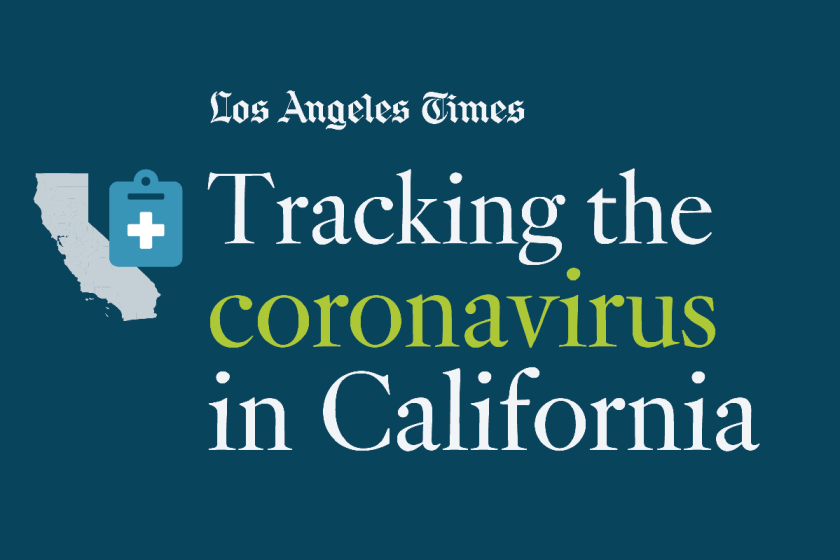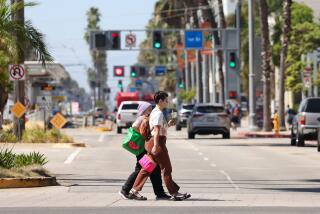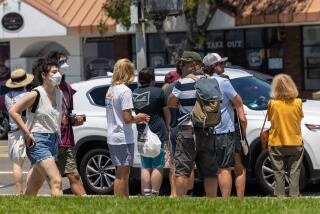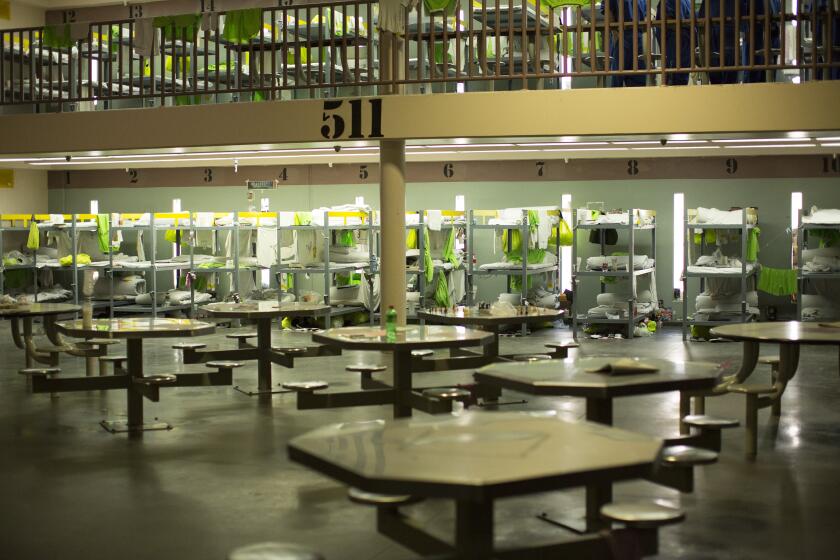To aid coronavirus fight, The Times releases database of California cases

- Share via
In an effort to aid scientists and researchers in the fight against COVID-19, The Times has released its database of California coronavirus cases to the public.
To follow the virus’ spread, The Times is conducting an independent survey of dozens of local health agencies across the state. The effort, run continually throughout the day, supplies the underlying data for this site’s coronavirus tracker.
Its tallies can arrive days ahead of numbers published by the California Department of Public Health. By polling local agencies, The Times database also gathers some information not provided by the state. The system has won praise from public health officials, who do not dispute its method of data collection.
The latest maps and charts on the spread of COVID-19 in California.
In recent weeks, experts have asked for access to the records in order to better study the pandemic. Starting today, the database is available on Github, a popular website for hosting data and computer code. The files will be updated daily at github.com/datadesk/california-coronavirus-data.
The Times data are already being put to use. The medical school at UC San Francisco today launched a new website for investigating COVID-19. The site, called the UCSF Health Atlas, is at healthatlas.ucsf.edu.
It allows users to cross-reference the location of coronavirus cases with other factors, like age, race and income. This practice is common in the field of public health, where scientists scour data to identify the underlying forces that drive the spread of disease.
“The coronavirus is something that we know has the ability to affect everyone,” said Kirsten Bibbins-Domingo, chair of the department of epidemiology and biostatistics at UCSF. “We also know that the impact of COVID is not going to be seen uniformly across the state.”
Bibbins-Domingo says it’s too soon to fully understand the forces shaping the coronavirus outbreak, which is why she says it’s vital to closely monitor the data as they arrive.
“As this pandemic plays out we will see many more patterns emerge,” she said. “Being able to see the COVID cases overlaid with other factors will help all of us better understand.”
Bibbins-Domingo said she hopes the new site can make the techniques used by experts accessible to a wider group of people, including journalists, policy makers, students and the general public.
The Times data are free for personal, non-commercial use, though some restrictions apply. For instance, reselling the raw data is prohibited. Terms of use are spelled out on Github.
How does the Los Angeles Times coronavirus tracker work? The people who built and maintain it explain.
More to Read
Sign up for Essential California
The most important California stories and recommendations in your inbox every morning.
You may occasionally receive promotional content from the Los Angeles Times.













